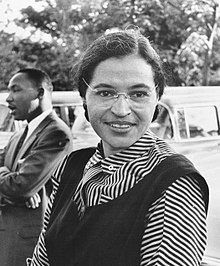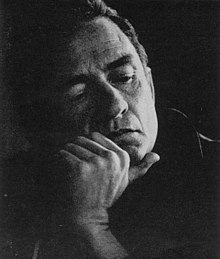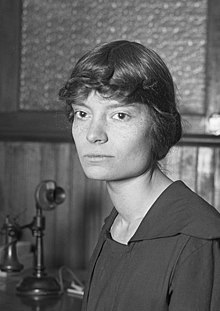For Sunday December 29, 2019
Lectionary Readings (Revised Common Lectionary, Year A)
Isaiah 63:7-9
Psalm 148
Hebrews 2:10-18
Matthew 2:13-23
It's that time of year for the most subjective of exercises — choosing my favorite books of 2019. Truly, there's no accounting for personal taste. This year I'm doing something a little different. I'm reaching all the way back to when we launched JWJ in 2004, and selecting my all time "ten best biographies."
Please note that you can search JWJ's Comprehensive Index of over 800 book reviews alphabetically by author, or by fifteen different subject categories like history, art, economics, etc. And if you ever get stuck, just use the "search" button in the top right corner of every JWJ page.
The hot-linked titles will take you to my full book review.
Merry Christmas, Happy New Year, and happy reading!
Johnny Cash: Robert Hilburn, Johnny Cash: The Life (New York: Little, Brown and Company, 2013), 679pp.
Almost everyone who was close to Johnny Cash (1932–2003) wrote their memoir — his two wives, his son John, his daughter Roseanne, and his bass player of twenty-five years, Marshall Grant (who once wondered aloud how someone could be so talented, so inspirational, and so screwed up). Cash himself wrote two autobiographies (1975, 1997). There's a mountain of secondary sources. Is there any need for another book about Cash? Robert Hilburn, the music editor of the LA Times for thirty-five years, put this question to Lou Robins, who managed Cash for twenty-five years. When asked how much of the Johnny Cash story had been told, Robins replied, "only about twenty percent."
 |
|
Rosa Parks, 1955.
|
Dorothy Day: Kate Hennessy, Dorothy Day: The World Will Be Saved by Beauty; An Intimate Portrait of My Grandmother (New York: Scribner, 2017), 372pp.
In the "Acknowledgements" at the end of this book, Kate Hennessy (b. 1960) says that it took her five years to write this family memoir about her "paradoxical grandmother" Dorothy Day (1897–1980), her many "complexities and contradictions," and in particular the deeply complicated mother-daughter relationship between Day and her only child Tamar (1926–2008). Well, it was worth the wait.
Paul Farmer: Tracy Kidder, Mountains Beyond Mountains; The Quest of Dr. Paul Farmer, A Man Who Would Change the World (New York: Random House, 2003), 317pp.
Paul Farmer was born in 1959, the second of six children. He grew up in Alabama and then Florida, where his mother clerked at the Winn-Dixie grocery store and his colorful but strict father, nicknamed "the Warden" by his daughters, bought an old bus at a public auction that he planted at a trailer park near a campground. Throwing a cement block in front of the bus doors for steps, the Warden declared the Blue Bird Inn house and home for the next five years. He then moved everyone to a dilapidated 50' boat with a leaky roof, also bought at a public auction, which he moored in an uninhabited bayou on Florida's Gulf Coast. They had no running water and washed their clothes at a laundry in town. Farmer would later enjoy identifying himself as "poor white trash."
Alexander Hamilton: Ron Chernow, Alexander Hamilton (New York: Penguin Press, 2004), 818 pages.
Ron Chernow's magisterial biography commemorates the 200th anniversary of the death of Alexander Hamilton (1755–1804), who was killed in a duel by then vice president Aaron Burr. Because of the savage politics and pathological enmity between Hamilton and his detractors (Jefferson, Madison, Adams, and Monroe), his reputation has suffered neglect, when in fact he might have been the most important architect of our post-Revolutionary American experiment. Hamilton's was "the most dramatic and improbable life of any of the founding fathers" (p. 713), a life "so tumultuous that only an audacious novelist could have dreamed it up" (p. 4).
 |
|
Johnny Cash, 1970.
|
Julian of Norwich: Amy Frykholm, Julian of Norwich, A Contemplative Biography (Brewster, MA: Paraclete Press, 2010), 147pp.
Her mother said that she asked too many questions. As a girl she had an insatiable desire to experience the love of God beyond the rituals of the church. She survived the plagues of 1349 and 1362 which decimated three-quarters of the population of Norwich on England's east coast. Then came the visions, "showings" or what she called the "ravings" during a period of sickness when she almost died.
Martin Niemoeller: Matthew D. Hockenos, Then They Came for Me; Martin Niemöller, The Pastor Who Defied the Nazis (New York: Basic Books, 2018), 322pp.
It's been said that we want our heroes without blemishes and our villains without redemption. Matthew Hockenos calls his biography of the German Lutheran pastor Martin Niemöller (1892–1984) "revisionist" precisely in order to repudiate this dangerous temptation. The title of his book comes from Niemöller's famous poetic confession, the exact origins of which remain a mystery:
First they came for the Communists, and I did not speak out – Because I was not a Communist.
Then they came for the Trade Unionists, and I did not speak out – Because I was not a Trade Unionist.
Then they came for the Jews, and I did not speak out – Because I was not a Jew.
Then they came for me – and there was no one left to speak for me.
As Hockenos shows, by his own admission, and for a long time, resistance is exactly what Niemöller did not do.
Flannery O'Connor: Brad Gooch, Flannery; A Life of Flannery O'Connor (New York: Little, Brown and Company, 2009), 448pp.
Mary Flannery O'Connor (1925–1964) published only two novels — Wise Blood in 1952, and The Violent Bear It Away in 1960, and two collections of short stories — A Good Man Is Hard to Find and Other Stories in 1955 and the posthumous Everything That Rises Must Converge in 1965. That output was more than enough for her short life to cast a long shadow across the literary landscape, evidenced by the 195 doctoral dissertations and seventy book length studies of her work.
Rosa Parks: Jeanne Theoharis, The Rebellious Life of Mrs. Rosa Parks (Boston: Beacon Press, 2013), 304pp.
This new biography of Rosa Parks coincides with the 100th anniversary of her birth on February 4, 1913. Remarkably, it's the first comprehensive and critical biography of one of the most important women in American history. Parks's many awards included a Presidential Medal of Freedom (1996), the highest award given by the executive branch of government, and the Congressional Gold Medal (1999), the highest honor bestowed by the legislative branch. When she died in 2005 at the age of 92, Parks became the first woman, the second black, and only the third private citizen to lie in honor in the Capitol Rotunda.
 |
|
Dorothy Day, 1916.
|
Mother Theresa: Brian Kolodiejchuk, editor, Mother Teresa; Come Be My Light; The Private Writings of the "Saint of Calcutta" (New York: Doubleday, 2007), 404pp.
When the desert monastics of fourth-century Egypt fled the bustle and business of the cities to survey the geography of the human heart, they discovered that the outward journey in the noisy world was a lot easier than the interior journey of the soul in the desert solitude. Without exception they recommended the sage advice of Saint Anthony the Great (251–356) : "expect trials until your last breath." To the shock and dismay of many admirers, and the criticisms of some detractors, this volume of Mother Teresa's private correspondence shows that she was no exception to the monastic rule. Published to coincide with the tenth anniversary of her death (1910–1997), letter after letter documents the deep darkness that plagued her for fifty years.
David Foster Wallace: D.T. Max, Every Love Story Is A Ghost Story; A Life of David Foster Wallace (New York: Viking, 2012), 356pp.
By the time David Foster Wallace graduated from Amherst College in 1985, he had won ten academic awards and written two senior theses. One was for the philosophy department on modal logic, the other a 500-page monster for the English department, which was published as his first novel when he was twenty-three (The Broom of the System). He had also developed a heavy drug habit, battled severe clinical depression, attempted suicide, and submitted himself to psychiatric hospitalization. In this first full-length biography of Wallace, these two themes crisscross like a double helix — a brilliant polymath who for many readers altered the form and function of writing fiction, and a tragic life that ended in suicide at the age of forty-six after struggling for thirty years with what he called The Bad Thing.
Dan Clendenin: dan@journeywithjesus.net
Image credits: (1) Wikipedia.org; (2) Wikipedia.org; and (3) Wikipedia.org.





